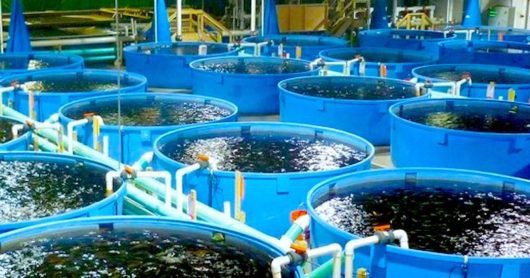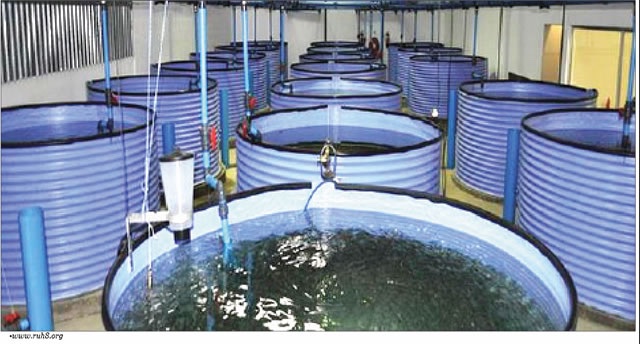In this article, you will get information on the most effective ways to sell your catfish and boost your profits Fish farming has become popular as a means of income for families in Nigeria, but new farmers struggle to sell catfish without loss.
The most prominent challenge new farmers face is marketing. Some believe catfish will sell well due to high demand.
That’s correct on a global scale.
Nigeria still imports various types of fish, but imported fish cannot replace locally farmed catfish. Nigerians consume seafish, shrimps, tilapia, fish products like Titus, and other canned fish products.
To succeed in fish farming, adequate planning and innovative marketing strategies are crucial for selling catfish once they are ready for the market.
What are the Most Efficient Ways to Sell Your Catfish in Nigeria?
There are multiple ways to reach the market, but choosing the right one can make the journey easier. In this discussion, we will cover three ways to give you an idea.

1. Wholesale buyers
Individuals who purchase farm produce in bulk at a reduced price are wholesale buyers. They buy everything that has been produced, set their price, and then sell to retailers to make a profit.
These high-volume buyers, known as off-takers, purchase all your fish in one go.
It is wise for large-scale catfish farmers to work with reputable suppliers who prioritize fair distribution to markets.
Wholesalers transport and sell table-sized fish to retailers, handling logistics and payment collection.
Dealing with wholesalers can have a downside, as they have control over the price you receive for your catfish. This can pose a challenge for small-scale farmers, as they may earn less profit due to their limited control over pricing.
Selling to them becomes discouraging when your cost price is high due to not farming at an ideal economic scale.
2. Niche Market
Small-scale farmers should consider selling in niche markets closer to their farms.
This way, you can become a fish farmer, marketer, or retailer. You could sell to families, ice cream parlours, hotels, restaurants, street markets, and more.
Although it takes time to analyze or develop, the niche market approach gives you more control over your pricing as long as it is reasonable and affordable.
The advantage of small-scale fish farming is that it yields higher profits than selling at wholesale prices.
3. Target Size
Top cropping is a recommended way of selling fish that involves separating larger fish from smaller ones in the pond.
The advantage of this approach is that you can start selling catfish earlier, which will increase your cash flow initially.
In the long run, this practice will have adverse effects. The smaller fish remaining in the pond will not be able to grow due to the continuous disturbance caused by the top cropping activity. Additionally, this practice does not allow for the best use of the pond space.
Always stick to your plan and sell based on the average size of fish in the pond. Avoid overselling when the market is strong.
Stick to your growth cycle and the desired size of fish you intend to sell. However, holding onto the fish in the pond for too long due to unfavourable prices can end up being costly. This is because the fish still need to be fed and maintained in the pond, but their growth rate slows down.
Sometimes, in order to maintain production and inventory levels, it may be necessary to lower prices. So in essence, these are the most efficient ways to sell your catfish in Nigeria as a farmer.
Adequate Planning

Marketing generally requires plans in order to be successful. It’s important to determine the quantity of fish needed to maintain a balanced stock. This can be calculated using production records to determine the standing stock at the farm.
If the amount of fish you have in stock increases, but the number of fish you sell is less than what you produce, it results in the fish growing larger and staying on the farm for a longer period of time than necessary. This ultimately leads to more farm space being taken up and a decrease in production.
On the other hand, if you sell more than you produce, your production will decrease and the fish available for sale will become smaller in size. This will lead to empty ponds and a significant reduction in production. It’s important to maintain a balance between sales and production to ensure continued success.
Why Most Nigerian Fish Farmers Do Not Succeed
Fish farms do not fail due to a lack of market. Despite some areas producing excess, the demand for fish is still huge and growing.
Therefore, if you happen to be in such a location, it is advisable to look for another market. For instance, Ibadan farms and exports a large quantity of fish to Abuja, Lagos, and the eastern region for sale.
Marketing is a crucial component of any business. Neglecting it can lead to frustration and a lack of sales.
Therefore, in order to consistently satisfy customers, fish farmers must have a reliable source of fish. However, some farms only sell their produce two or three times a year, making it difficult to establish a loyal customer base.
The high cost of fish feed is a major factor in the lack of success among fish farmers in Nigeria. Also, read my previous guide on starting a profitable catfish business in Nigeria.
Finally, good quality feed and water are essential for the growth of fish. Studies show that constantly changing pond water can hinder fish growth, indicating that water quality is not solely dependent on daily water changes.
Conclusion
In business, profit is essential. It’s important to approach dealings with intelligence and proper strategy.
